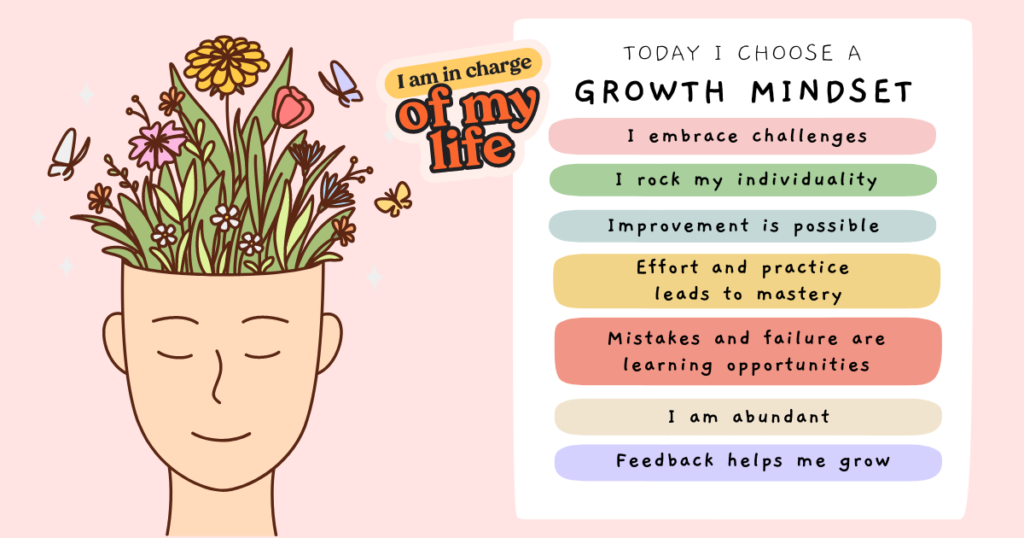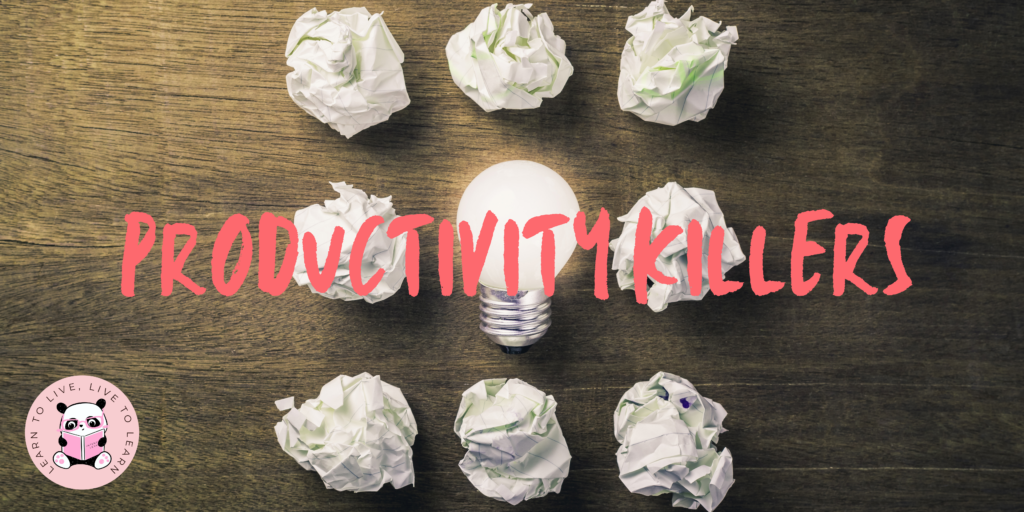Achieve Success and Live Your Desired Life | 8 Essential Mindsets
Written by Michelle Ong | February 3, 2024 | Growth

In this post, I share my list of 8 essential mindsets that I believe are key to empowering success and living the life I desire.
I’ve been pondering what truly determines success: is it luck or hard work? This led me to consider how our mindsets and beliefs shape our actions. A positive mindset can often be the key to propelling us toward success. In this post, I’ve compiled a list of essential mindsets that foster growth and success.
1. I Embrace Challenges
“The universe is change; our life is what our thoughts make it.”
Marcus Aurelius
Life is filled with challenges, and we often have a choice: face them head-on or run away. While avoiding problems might seem easier, it only leads to stagnation. Tackling obstacles is like rock climbing—each step upward may be slow, but persistence will get you to the top.
When you encounter difficulties, it’s essential to avoid excuses, procrastination, and complaints. Nothing worthwhile comes without effort. Take responsibility for solving your challenges, focus on progress rather than perfection, and embrace the idea that setbacks are part of the journey.
If you want to create a fulfilling life, invest time and effort into taking initiative. Thoughtful planning and decisive action are key to shaping the life you desire. Remember, it’s all about taking the reins and actively moving forward.
You may want to check out these articles for strategies to stop procrastinating and build confidence.
2. Effort & Grit = Mastery
“The only limit to your impact is your imagination and commitment.”
Tony Robbins
Achieving self-mastery demands effort, patience, and a lot of practice. I’ve long struggled with health and fitness, constantly battling procrastination and an aversion to exercise, which I associated with pain. When things got tough, I defaulted to taking the easy way out, setting goals but never finishing them, dragging my feet, and ultimately giving up. This mindset spilled over into other areas of my life, creating an endless loop of failure, regret, and deep unhappiness. It hurt my motivation, personal growth, and success.
I’ve come to realize that grit and consistency are crucial. Sticking to the grind, even when it’s hard, is the only way to break free from that cycle. Staying committed to the goals and dreams that matter to me is the key to achieving anything worthwhile. It’s not about quick wins; it’s about the steady, consistent effort that drives real success.
Be sure to check out this article that delve into building self-discipline and driving yourself toward self-mastery.
3. Feedback Helps Me Grow
I’ve always prided myself on being independent, confident that I could handle problems on my own. But I’ve learned the hard way that too much pride can actually hold me back. There’s a limit to what I know and can do, and sometimes I wasn’t even aware of it—or I just didn’t want to admit it. By insisting on doing everything alone, I was letting arrogance get in the way of my growth and missing out on perspectives and solutions I hadn’t considered.
I’ve come to realize that staying open to learning and welcoming constructive feedback, even when it stings, is essential. Seeking help isn’t a sign of weakness but a sign of strength. It takes humility to admit that I don’t have all the answers, and that’s okay. Accepting advice and learning from others has opened up opportunities for growth and success that I wouldn’t have found on my own. But it’s important to be discerning in choosing the right people to seek advice from.
If you’re ready to make positive changes and grow, check out my list of 20 bad habits to be aware of and work on changing.
4. I Learn From My Mistakes & Failures
“Our greatest glory is not in never falling, but in rising every time we fall.”
Confucius
Shifting blame for our mistakes might feel easier, but it doesn’t help us grow. Many of us fear failure because society glorifies success and shuns failure, making us avoid it at all costs. Yet, we’re often drawn to stories of people who overcome failure to achieve success. I’ve struggled with this myself, feeling that failure makes me unworthy or inferior.
To tackle this mindset, I’ve drawn inspiration from the stories of successful people, learning from their experiences and how they faced setbacks directly. By engaging in self-reflection, I’ve started to see failures as valuable lessons rather than signs of worthlessness. Yes, owning up to mistakes can feel uncomfortable, but those feelings are temporary. Embracing challenges and confronting my limiting beliefs helps me grow. The Stoic philosophy of amor fati—accepting life’s ups and downs—reminds me to focus on learning and adapting rather than avoiding problems.
Check out this article to read about the lessons that helped me transform my life for the better.
5. I Choose A Growth Mindset
“Success is not just reaching goals; it’s about growing into the person capable of achieving them.”
Embracing a growth mindset means taking calculated risks and setting stretch goals to drive personal development. Building confidence and discipline helps me tackle challenges and persist through setbacks. By seeing obstacles as learning opportunities and maintaining optimism, I strengthen my resilience and expand my knowledge. Staying open to different perspectives and learning from others enhances my growth. Overall, believing that every problem can be solved and that I can always improve keeps me moving forward and overcoming difficulties.
To cultivate a growth mindset, I challenge myself with small, daily tasks that push me out of my comfort zone. For example, I take a quick cold shower every morning or make it a point to read one more page of a book. These tiny efforts, though manageable, help me build discipline and resilience over time. By consistently pushing past my comfort zone, I develop the confidence and courage needed to tackle bigger challenges and achieve growth.
6. I Strive To Improve Everyday
“I am always doing that which I cannot do, in order that I may learn how to do it.”
Pablo Picasso
Committing to self-improvement is crucial for fueling success and growth. For me, reading daily in both Japanese and English has been transformative. This habit keeps my brain engaged, stimulates intellectual growth, and opens me up to new perspectives. By continually challenging myself to learn and expand my knowledge and also relearn, I actively contribute to my personal and professional success. Embracing this mindset ensures that I stay curious and adaptable, using each insight gained to drive progress and fulfillment.
7. I Am Abundant
“The currency of success is gratitude, and an abundance mindset is the bank where you deposit it.”
Embracing an abundance mindset means appreciating what I have and focusing on the positive. By seeing my cup as half full, I shift my perspective to recognize opportunities and value in the present. I remind myself not to compare my journey to others and to accept that I am enough just as I am.
I choose optimism by letting go of minor worries and not taking things personally. I understand that others’ actions often reflect their own struggles, not my worth. Focusing on positivity and generosity, I give without expecting anything in return. This approach creates a positive cycle in my life and boosts my overall well-being.
By staying present, practicing gratitude, and sharing joy, I let go of past regrets and future anxieties. This mindset helps me fully enjoy the moment and leads to a happier, more fulfilling life.
8. I Embrace My Uniqueness
“Success begins with the courage to be yourself in a world trying to make you like everyone else.”
Embracing my unique identity and being proud of who I am is crucial for success. I’ve learned that my worth doesn’t come from external validation but from how I view myself. By celebrating my strengths and achievements, I cultivate authenticity and form stronger, more meaningful connections.
I focus on living by my own standards, not getting caught up in what others or society expects. This mindset helps me set my own yardstick for success and fosters resilience, creativity, and personal growth.
What Mindset Would You Like To Develop?
Success isn’t solely about resources; it’s about being resourceful with what you have. The right mindsets are essential building blocks that bring clarity and determination, fostering personal growth and guiding you toward a fulfilling life. What mindsets do you currently have or want to develop?
You might also find it helpful to read about mindsets to eliminate that can hold you back in this related article. Plus, be sure to check out my systematic blueprint to help you plan for success! article.
If this article resonated with you, please pin and share it with others! And follow me on Pinterest for daily inspiration!

